In 1633 the Inquisition charged Galileo Galilei with heresy and sentenced him to house arrest where he died nine years later. The heresy was published in Dialogues on the Two Chief Systems of the World which claimed that the earth is not the centre of the universe. Galileo’s willingness to pursue truth, even at great personal risk, paved the way for modern liberal education where the student is taught how – not what – to think. Today, teacher training programs have embraced a secular orthodoxy in postmodernism, an ideology which exalts activism and social justice to the detriment of discourse and critical thinking. Ironically, today’s activists closely resemble Galileo’s inquisitors. While dissenting voices may not face house arrest, they may well lose their careers and credibility. Prospective teachers must be made aware of this concerning trend, and work to foster a classroom culture where open debate and viewpoint diversity are championed; sadly, Faculties of Education are recommending that teachers do the opposite.
Premodern educators regarded learning as a painful duty to which children were naturally opposed; teachers championed obedience, and often used punishment to achieve and maintain it. The teacher’s responsibility was to imbue his students with the proper kind of knowledge, and to suppress opinions which he regarded as improper. Conversely, a liberal education trains the student to think for himself, and to form opinions after having heard the best arguments articulated by their strongest advocates. Professors in today’s teacher training programs claim to oppose the premodern authoritarians whose methods are (often rightly) dismissed as ineffectual and old-fashioned. Discerning teachers know that most students enjoy learning if it is sufficiently challenging and engaging. They also know that students need not be inculcated with their teacher’s personal political or religious beliefs. It is confounding that principles of liberal education such as individuality, self-discipline and open discussion are being usurped by the tenets of postmodernism which are more similar to premodern notions than they are different.
Postmodernism is a collectivist ideology whereby people are viewed as members of groups and not as individuals. For the postmodernist, the world is divided into the oppressors and the oppressed, and one’s membership is determined by characteristics such as ethnicity and sex. The oppressors hold all of the power, and so educators are honour-bound to train students to fight for power’s equal distribution. Those of us who went through a Marxist phase as young teenagers – and those who have yet to outgrow that phase – may be familiar with this argument. As Stephen Hicks has said, “Postmodernism is the academic far-left’s epistemological strategy for responding to the crisis caused by the failures of socialism in theory and in practice.” If the intellectual foundations of postmodernism are the same as those which produced the murderous communist regimes of the twentieth century, what will happen when that same ideology dominates our schools and universities?
In my experience as an education student, postmodernism was never acknowledged or defined by professors whose courses were influenced by that ideology. Interestingly, Western University did not offer a course in the Philosophy of Education when I attended. It is unsurprising, therefore, that postmodern claims go unnoticed by many students. A common one is the contradictory rejection and acceptance of objective truth – that is, it is objectively true that truth doesn’t exist. As such, teachers are taught, we must be sensitive to alternate ways of knowing. Mathematical and scientific explanations are merely subjective narratives, as are modernist claims about progress and prosperity. Such claims have simply been fabricated by the powerful so as to justify the continued exploitation of the oppressed. In the West teachers are predominantly white (and thus privileged) so they have a moral obligation to train their students to fight against the oppressors. Speaking from a position of privilege, the teacher’s voice may be used to amplify the voices of oppressed minorities whose opinions will otherwise be dismissed by the powerful. Teacher candidates have been raised under the corrupt auspices of Western democracy and free-market capitalism which are patriarchal and systemically racist. Oppressor-students have been granted unfair privileges through these systems, while Oppressed-students have been unfairly disadvantaged by them. Prospective teachers are not aware of this fact, however, and must be re-educated so that they can, in turn, re-educate their future students.
Re-education begins with “reflexivity,” a practice whereby students acknowledge their group identity and think about how their privilege (or lack thereof) influences how they think, what they believe, and who they are. Western University’s mandatory Aboriginal Education course provides an example. My classmates and I were required to write a two-part “De-colonizing Autobiography” where we were asked to consider our “relationship to colonialism.” After having described (and presumably atoned for) this relationship, we were to explain how we would incorporate “de-colonizing pedagogy” into our classrooms, and why we felt such a pedagogy is important for all Canadians to be subjected to. The University of British Columbia defines de-colonizing pedagogies as “teaching and learning approaches that both acknowledge and deconstruct structures of power” in an effort to “create space for, and give legitimacy to, Indigenous ways of knowing.” The notion that Ontario teachers must accept “Indigenous ways of knowing” as legitimate is problematic. It is necessary for Indigenous ways of knowing to be taught in our schools. Indeed, the study of Canadian history would be incomplete otherwise. It is concerning, however, that some believe that the Indigenous worldview should be universally accepted and free from criticism.
In the second-year Research in Intercultural Contexts course, students are taught about the “critical cosmopolitan principles.” One of these principles is “historicity,” which teachers are taught to use to explain how past and present inequities are related. Disagreement with these principles was dismissed by one professor as “resistance to diversity issues” resulting from the subconscious desire to “defend discourses that privilege [voices] of the dominant culture.” This course is offered as part of a specialization in International Education which I registered for as a student who was interested in teaching abroad. Disappointingly, however, this specialization was devoted to furthering the narrative that Western colonialism and imperialism have shaped our education system which must now be reshaped to become more diverse, equitable and inclusive. Western liberal education thrived because it was forced upon subjugated populations whose own ways of knowing are as legitimate. Teachers who choose to work abroad are engaging in colonialism by imposing Western ways of knowing on students. Canonical works of Western literature are studied not because of their enduring relevance, sophistication and beauty, but because of a Western superiority complex. Thomas Sowell has said of multiculturalism: “you can praise any culture in the world except Western culture—and you cannot blame any culture in the world except Western culture.” Through classroom discussions over the course of a two-year period, I can say that my experience was that many – if not most – education students had accepted the anti-Western narrative which Sowell describes. It seems reasonable to assume that this is the narrative that will be taught in future history, literature and politics courses.
Professor Ilana Redstone has referred to the “silent crisis in the classroom” – when the ideological underpinnings of influential theories are ignored, there is a “tacit substitution of theory for truth.” This is particularly problematic when it occurs in a teacher training program. Teachers are learning that it is acceptable to infuse course content with personal belief. Students may be chastised for questioning their teacher’s opinions. Perhaps they may even be punished if those questions are interpreted as racist, homophobic, or intolerant. There is no place for bigotry in our classrooms, but too often we see thoughtless accusations of bigotry leveled against discerning critics who are branded as heretics – or racists, in our modern parlance. Faculties of Education – and teachers as a profession – must stand against postmodern anti-intellectualism and authoritarianism if they wish to teach their students how to think. Galileo lived during a time when views that were contrary to certain universally accepted truths were censored, and their advocates punished. We, too, live in such a time where a slip of the tongue – not to mention reasonable and carefully articulated statements – can jeopardize one’s reputation and livelihood.




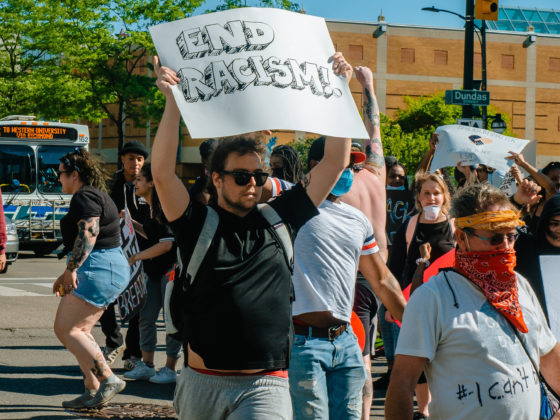
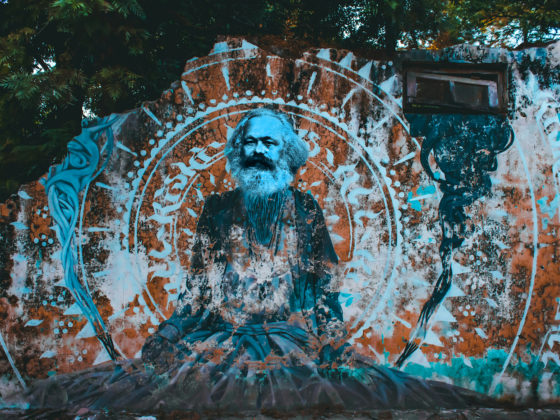
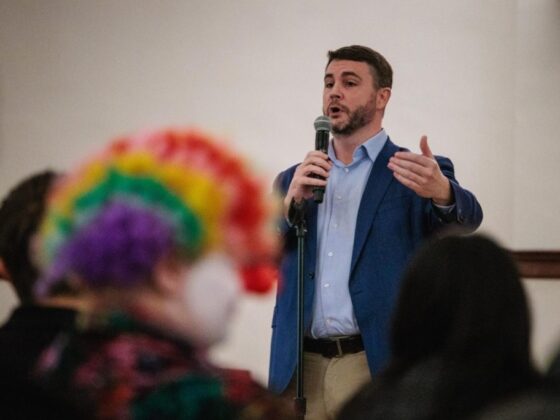



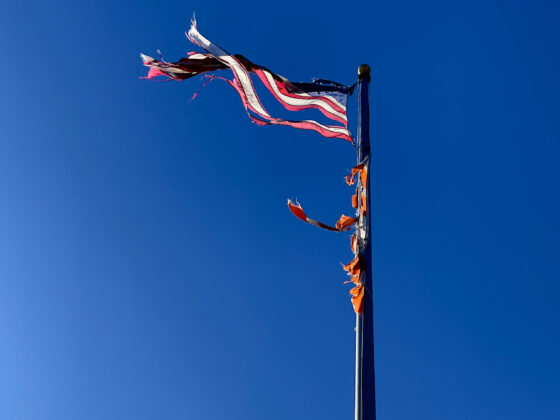
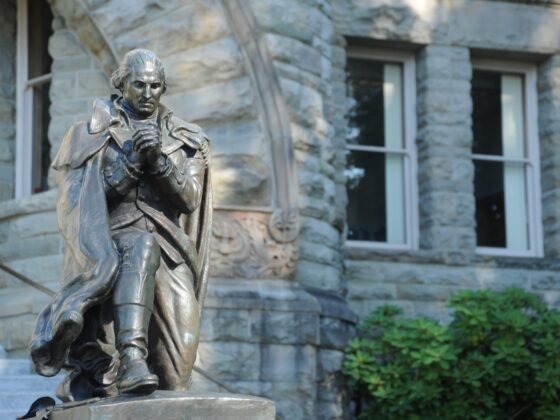

9 comments
Quite shameful that you are repeating urban legends about Galileo. He was not punished for promoting heliocentrism (which was already widely accepted at the time, in particular by church authorities), but doubting it (which was in fact a rather dubious claim, but that doesn’t make the nonsense that Galileo was punished for heliocentrism any more true).
What a spot-on piece of work! I attended a very small traditional Liberal Arts college and then a larger college which was more “progressive” shortly after. While it was obvious to me that the latter was frantically attempting to keep abreast of the latest sensitivities, I never have noticed the similarities in what you’re writing about. But it’s true! The heavy-handed discipline for those who step out of line does harken back to the “premodern” system.
I wonder what the people who implement these punitive measures today would think of the comparison. Would they disagree simply because they see themselves as being more enlightened, and holding themselves and others to a better set of values?
I see it as hypocritical that in spite of adopting theories of moral relativism, the postmodern system’s punishment is swift and severe when one of their own strays from the new system of virtue.
When I was a young teen, my Dad would see me layin’ around reading comic books and he’d get all upset and say, “Make yourself useful!”
It was annoying at the time, but in hindsight is great advice. I’ve no degree, but have acquired a broad range of knowledge & skills for which I’ve been rewarded.
At about 8, I discovered my Dad’s Air Force SAC Survival Handbook, and absorbed it. It teaches ultimate self sufficiency for a pilot downed in hostile wilderness – water, food, shelter, navigation, defense, climbing, first aid, etc.
That and being raised poor & having to make do living on the edge of a small Iowa town helped push me in the direction of being a self sufficient, rugged individual.
Looking back and analyzing my career, and observations of others during that time, lead me to state my Four Pillars of Personal Prosperity and Success:
1) Can-do attitude
2) Diligence
3) Continuous learning
4) Trustworthiness
All rooted in neighborly love, coinciding with the Lord’s command.
Any sane employer would love to have a job applicant with those character traits. One with those traits and sufficient accumulation of knowledge and resources can create their own business.
A teacher friend told me, “I can teach ’em, but I can’t learn ’em.”
A desire to learn is what makes a student.
My favorite bumper sticker is, “Question Authority”; I find that good authorities give good answers. If I don’t get good answers, I go elsewhere.
Kids should be taught that. It’s two sentences.
Greetings, Calum —
How in the world did you have the patience to finish your degree in education?
I don’t think I could have hacked it.
Well done!
You’re on to something in your observation that Western didn’t offer a phil ed course. Ed schools in the US have long required “foundations” courses. Until about 20 years ago, these were phil ed courses. Inroductory textbooks would identify four basic philosophical orientations:
“Perennialism” = education in the transcendent–i.e. “the True, the Beautiful, and the Good” (e.g. Renaissance humanists, Mortimer Adler, “the Great Books”)
“Progressivism” = student-centered education–i.e. fit the education to the child (e.g. Rousseau, Dewey, “the Project Method”)
“Essentialism” = education to help one succeed in society–i.e. fit the child to the society (e.g. STEM initiatives, E.D. Hirsch, “Core Knowledge/Cultural Literacy”))
“Social Reconstructionism” = education to transform society–i.e. child as change agent (e.g. Paolo Freire, “Teaching to Transgress”)
Foundations of Education courses focused on philosophies of education have largely been replaced with courses in “sociological” or “cultural” foundations of education. These courses tend to focus oppression, structural inequality, race/gender, etc., and tend to be taught from a a Social Reconstructionist perspective. I’ve been in and around ed schools now for 25 years, and I’ve long suspected what you intuited: that eliminating intro to phil ed courses helped enable the uncontested enshrinement of Social Reconstructionism as the ed school curriculum.
My account here is oversimplified. Progressivist and even Essentialist concerns still get addressed. But Social Reconstructionism is the governing orientation, rendered all the more powerful by keeping students largely ignorant of alternatives.
I think we are not dealing with classic Marxist or Postmodern ideology. Yes, what we see, are some twisted elements, but they are used as TOOLS, to remove the modern cultural, “knowing” layer in the brain (reason, logic, scientific knowledge blocks, complexity).
By “deconstructing” individual self esteem, reactance and learned experience with bastardized postmodern elements and an evolutionary grown set of reality distortion teachings, the “DIE gospel” is able to drill into the unconscious regions (social behaviour, tribalism, fear, flight, fight).
The purpose of visible blocks of marxist materialistic analytics or post modern deconstruction is not education or social justice (look at the results!) – they are exclusively used to prove group victimhood, make them morally unassailable, so they are protected from scientific debunking.
They are not used to create socialist ideology, fight capitalism or destroy the banks, they are using them, to lock the drilled individuum in an oppressor group, so he/her canot escape his tribal guilt (shame) or create resentment and relief in defined victim groups to convert a large portion to activists (preachers/priests) – as pawns for the moral shielding effect. The result is “diverse representation” (visible legitimation) and authoritarian mind control (veiled).
As described, part of the educational reprogramming process are periodic, public struggle sessions with moving goal ports, e.g. personal decolonization/checking privilege to remove selected protection layers, to access the subconscious. This process is internalized by reprogrammed individuals and self-perpetuated with public guilt confessions, which are experienced as short time relief and expected from every believer to maintain group cohesion (in communist countries, every member of a cadre group, up to the Central Commitee must publically self criticize – and criticize others).
All in all this is a proven classical method to “reprogram” humans, used by countless cults and religions, but brought to perfection in communist countries and maoist China to corrupt and control every individual. But make no mistake, we are not dealing with marxists, postmodern philosophy or “Woke Science” departments on the universities, we are dealing now with a global religion of “reprogrammed” brains and a rising cultist priest class, which melt(ed) with ALL institutional power structures and bending the competent, productive backbone of the society to their rule.
This is not a group of leftist philosophs, professors and idologists, which took over the world by accident. This is a strategically engineered, global transformation process, which will rewrite past, present and future.
I fear you are correct. I suspected as much way back in the mid-2000s when I began to question my role as a professor. My department was becoming increasingly ‘progressive’ in dumbing down education, yet at the same time more ‘authoritarian’ in the way we were supposed to teach our classes. In the beginning I blamed it on educational mismanagement, but gradually began to suspect that there was a malignant purpose behind it. Eventually I quit, no longer able to cope with the cognitive dissonance of feeling complicit in a scam.
Of course, Michel.
@calumanderson
I am the vice-president of the “Association Humaniste du Québec” a French speaking secular humanist organization. We have a web site as well as quarterly bulletin we send to our French speaking membership. One of our main goal and principles is the promotion of critical thinking and as such your text certainly hits a bullseye for us. I would like your permission to translate your text in French, with all due credits of course, so we could share it among our membership and also on our website. Please let us know if we may have your agreement.
Than you